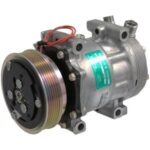When you’re planning to sell or trade in your car, you’re likely looking for ways to maximize its value. One common question that pops up is whether you should address those unsightly scratches before heading to the dealership or listing it online. It’s tempting to sell your car as-is and avoid the hassle and expense of repairs, but understanding how scratches impact your car’s value is crucial to making an informed decision. This article will explore whether repairing scratches before selling your car is a worthwhile investment. We’ll delve into how a car’s appearance affects its value, the cost implications of scratch repair, and provide guidance to help you decide if fixing those scratches is the right move to boost your car’s resale potential.
The Critical Role of Appearance in Car Resale Value
It’s no secret that first impressions matter, and this holds true when selling or trading in your vehicle. While the mechanical condition is undoubtedly important, the visual appeal of your car plays a surprisingly significant role in determining its perceived value. Potential buyers, whether dealerships or private individuals, are immediately influenced by the exterior condition of your vehicle.
Think about it from a buyer’s perspective. A car with gleaming paint and no visible scratches suggests that it has been well-cared for, both cosmetically and potentially mechanically. Conversely, a vehicle riddled with scratches, faded paint, or other cosmetic blemishes can create a negative first impression. It might lead buyers to believe that the car has been neglected or has underlying issues, even if that’s not the case.
This initial visual assessment directly impacts the perceived value of your car. A pristine-looking vehicle is often associated with higher value, making buyers and dealerships more inclined to offer a better price. On the other hand, visible scratches and cosmetic damage can lower the perceived value, resulting in lower offers. Essentially, the appearance of your car acts as a visual cue that influences how potential buyers evaluate its worth.
Can You Sell a Car with Scratches?
Absolutely, you can sell a car with scratches. It’s a common misconception that your car needs to be in perfect condition to be sold or traded in. Dealerships and private buyers routinely purchase vehicles with existing wear and tear, including scratches. However, it’s essential to recognize that the presence of scratches will likely affect the final selling price or trade-in value you receive.
The key factor is the severity and visibility of the scratches. Minor, superficial scratches might have a minimal impact, especially on older, higher-mileage vehicles where some wear and tear is expected. However, deep, noticeable scratches, particularly in prominent areas like doors, hoods, or bumpers, can significantly detract from your car’s appeal and value. The more noticeable and extensive the scratches, the more likely they are to reduce the offers you receive.
How Do Scratches Impact Your Car’s Trade-In Value?
Even seemingly small scratches can chip away at your car’s trade-in value. The extent of the impact depends on several factors:
- Size and Depth of Scratches: Superficial scratches that are barely visible and can be buffed out easily will have a minimal impact. However, deeper scratches that penetrate the clear coat or paint layers are more problematic and will lead to a greater reduction in value.
- Location of Scratches: Scratches in highly visible areas, such as the hood, doors, and trunk, are more detrimental than those in less conspicuous spots like the lower rocker panels. Scratches on plastic bumpers may be perceived differently than scratches on metal body panels.
- Number of Scratches: A single, minor scratch might be overlooked. However, multiple scratches, especially if they are clustered together or spread across different parts of the vehicle, will create a stronger negative impression and have a more significant impact on value.
- Overall Car Condition: If your car is otherwise in excellent condition, with low mileage and a well-maintained interior, scratches might stand out more and be perceived as a greater flaw. Conversely, on an older car with existing wear and tear, minor scratches might blend in and have less of a noticeable impact.
It’s difficult to provide precise figures for how much scratches will reduce your car’s value, as it depends on the appraisal process and the specific dealership or buyer. However, as a general guideline:
- Minor scratches (easily buffed): May result in a minimal reduction, perhaps from a few dollars to a hundred dollars or so.
- Moderate scratches (requiring touch-up paint or minor repair): Could reduce the value by several hundred dollars, potentially in the range of $200 to $800, depending on severity and location.
- Deep or extensive scratches (requiring professional bodywork): Can lead to a more substantial decrease, possibly $800 to $1500 or even more, depending on the extent of the damage and the number of panels affected.
These are just estimated ranges, and the actual impact can vary. Dealerships will often factor in the cost of reconditioning the vehicle, including scratch repair, when determining their trade-in offer.
The Key Question: Is Scratch Repair Worth It Before Selling?
Deciding whether to repair scratches before selling your car boils down to a cost-benefit analysis. You need to weigh the cost of scratch repair against the potential increase in your car’s selling price or trade-in value.
Here’s a breakdown to help you make the decision:
When Repairing Scratches is Likely Worth It:
- Deep or Noticeable Scratches: If your car has deep scratches that are very visible and detract significantly from its appearance, repairing them is often a good investment. These types of scratches are more likely to significantly lower offers.
- Newer Cars or Cars in Excellent Condition: On newer vehicles or those in otherwise pristine condition, scratches are more glaring and can have a greater negative impact on perceived value. Repairing scratches on these cars is more likely to yield a positive return.
- Relatively Inexpensive Repairs: If you can get the scratches repaired affordably, perhaps through DIY methods for minor scratches or by getting competitive quotes from body shops, the potential increase in value might outweigh the repair cost.
When Repairing Scratches Might Not Be Necessary:
- Minor, Superficial Scratches: For very light, superficial scratches that are barely noticeable, the cost of professional repair might not be justified. You might be able to address these yourself with a scratch removal kit or simply leave them as is.
- Older Cars or Cars with Existing Wear and Tear: On older, higher-mileage vehicles that already have other cosmetic imperfections, a few scratches might be expected and less likely to significantly impact the offer. In these cases, buyers might be less concerned about minor scratches.
- Expensive Repairs: If scratch repair is going to be costly, especially for extensive damage requiring panel replacement or repainting, it might not be financially worthwhile, especially if the potential increase in selling price is uncertain.
To make the best decision, follow these steps:
- Assess the Scratches: Honestly evaluate the severity, location, and number of scratches on your car.
- Get Repair Estimates: Obtain quotes from reputable body shops for repairing the scratches. Consider different levels of repair, from touch-up paint to professional refinishing, to see the cost range.
- Research Your Car’s Value: Use online car valuation tools (like Kelley Blue Book or Edmunds) to estimate your car’s trade-in value in both “good” and “fair” condition. “Good” condition assumes no significant cosmetic damage, while “fair” condition accounts for some wear and tear, including scratches.
- Compare Costs and Potential Value Increase: Compare the repair estimates to the potential difference in value between “good” and “fair” condition. If the repair cost is significantly less than the potential value increase, repairing the scratches is likely a smart move. If the repair cost is close to or exceeds the potential value increase, it might not be worthwhile.
- Consider DIY Options: For minor scratches, explore DIY scratch repair kits. These can be a cost-effective way to improve the appearance of your car without professional expenses.
Beyond Scratches: Other Ways to Enhance Resale Value
While addressing scratches is important, remember that it’s just one aspect of maximizing your car’s resale value. Here are other key areas to focus on:
- Dent Repair: Similar to scratches, dents significantly detract from a car’s appearance. Repairing dents, especially larger or more noticeable ones, can greatly improve your car’s appeal.
- Rust Removal: Rust is a major red flag for buyers. Addressing rust spots by sanding, treating, and repainting them is crucial to prevent further corrosion and boost value.
- Windshield Repair/Replacement: Chips or cracks in the windshield are safety hazards and reduce value. Repairing minor chips or replacing a cracked windshield is a worthwhile investment.
- Professional Detailing: A thorough interior and exterior detailing can make your car look its best. This includes cleaning, waxing, polishing, and addressing interior stains and odors.
- Mechanical Maintenance: Ensure your car is mechanically sound. Address any outstanding maintenance issues, like oil changes, fluid flushes, or brake repairs. Provide service records to demonstrate your car’s upkeep.
By addressing both cosmetic and mechanical aspects, you can present your vehicle in the best possible light, increasing its attractiveness to buyers and maximizing your chances of getting a higher selling price or trade-in value.
Ready to Maximize Your Car’s Value?
Selling or trading in your car is a significant transaction. By carefully considering whether to repair scratches and addressing other cosmetic and mechanical issues, you can take control of your car’s value and achieve the best possible outcome. If you’re in Flagstaff, Arizona, and need professional scratch repair or other auto body services, the experts at Flagstaff Collision Center are here to help. Request an estimate today and discover how we can help you transform your vehicle’s resale potential.


